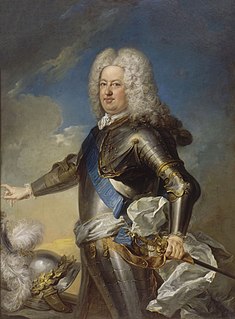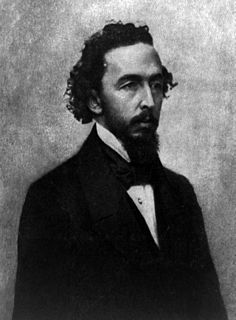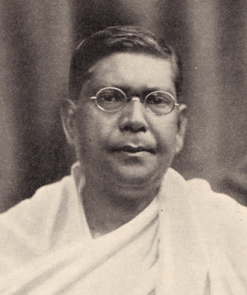A Quote by Stanislaw I Leszczynski
A well-read fool is the most pestilent of blockheads; his learning is a flail which he knows not how to handle, and with which he breaks his neighbor's shins as well as his own. Keep a fellow of this description at arm's length, as you value the integrity of your bones.
Related Quotes
The master in the art of living makes little distinction between his work and his play, his labor and his leisure, his mind and his body, his information and his recreation, his love and his religion. He hardly knows which is which. He simply pursues his vision of excellence at whatever he does, leaving others to decide whether he is working or playing. To him he's always doing both.
Man is more than his environment. It is from the innate quality of the Spirit in him, his inner storehouse, that he draws those ideas, his intuitions, which unify his perceptions of the external world instantaneously with a value which is qualitative and not quantitative, and which he embodies in the works of his culture - those achievements which belong not only to one particular time but to all times, and mark the path of his upward progress.
The child knows only that he engages in play because it is enjoyable. He isn't aware of his need to play--a need which has its source in the pressure of unsolved problems. Nor does he know that his pleasure in playing comes from a deep sense of well-being that is the direct result of feeling in control of things, in contrast to the rest of his life, which is managed by his parents or other adults.
Picture the prince, such as most of them are today: a man ignorant of the law, well-nigh an enemy to his people's advantage, while intent on his personal convenience, a dedicated voluptuary, a hater of learning, freedom and truth, without a thought for the interests of his country, and measuring everything in terms of his own profit and desires.
[About Swami Vivekanada:] I am not saying that the message of the Swami was the final word in our nationalism... But it was tremendous - something with an undying glory of its own. If you read his books, if you read his lectures, you are struck at once with his love of humanity, his patriotism, not abstract patriotism which came to us from Europe but of different nature altogether a more living thing, something which we feel within ourselves when we read his writings.
With only one life to live we can't afford to live it only for itself. Somehow we must each for himself, find the way in which we can make our individual lives fit into the pattern of all the lives which surround it. We must establish our own relationships to the whole. And each must do it in his own way, using his own talents, relying on his own integrity and strength, climbing his own road to his own summit.






































